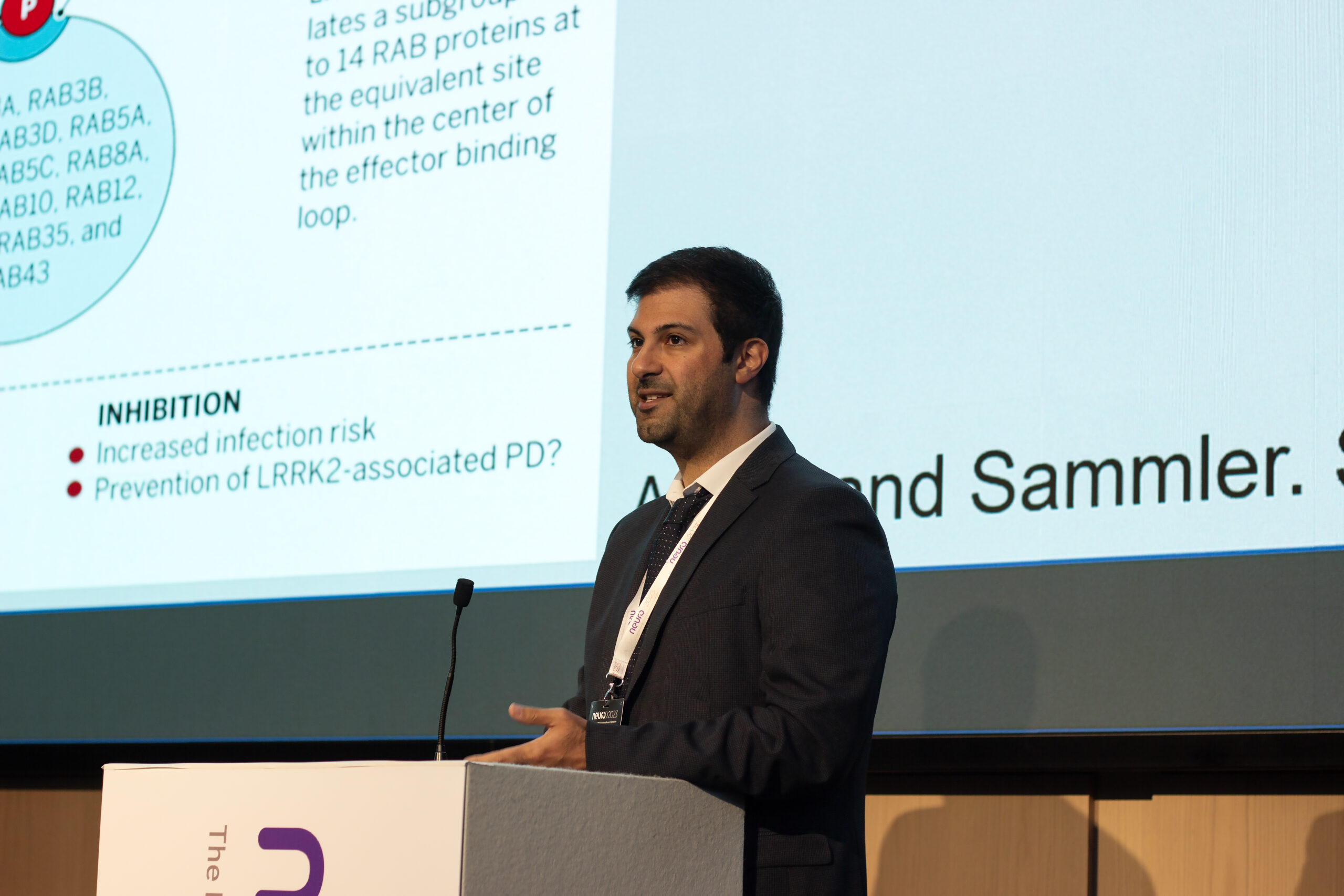Research to help establish a novel diagnostic test for PSP has been celebrated at the 2024 International Congress of Parkinson’s disease and movement Disorders.
Dr Edwin Jabbari, a final year Neurology resident at the Queen Square National Hospital for Neurology and Neurosurgery in London, received one of the Movement Disorders Society’s Junior Awards at the congress, which took part in Philadelphia between 27 September and 1 October.
Dr Jabbari’s award-winning research in collaboration with researchers at the NIH Rocky Mountain Laboratories has led to the development of a novel diagnostic test called a 4-repeat tau seed amplification assay (SAA) which can detect PSP disease pathology in brain tissue and spinal fluid samples from patients.
Dr Jabbari is using the testing method to help improve early diagnosis of PSP as well as measuring prognosis.
Linked to this, Dr Jabbari and team members at University College London recently published a paper in Movement Disorders journal where they applied an established alpha-synuclein SAA to patient spinal fluid samples.
In this project, which is funded by PSPA, spinal fluid samples from 59 PSP and 37 participants with CBS from the PROSPECT study were applied to the alpha-synuclein SAA, and the clinical course was compared between those who were positive vs. negative for the alpha-synuclein test.
As an award winner, Dr Jabbari presented findings from his research at the congress on 28 September.
Dr Jabbari said: “The alpha-synuclein SAA is designed to detect the presence of Parkinson’s disease pathology in the brain. We found the test to be positive in 10-25% of PSP & CBS patient samples suggesting that in a subset of PSP & CBS patients, Parkinson’s occurs as a secondary co-pathology alongside the primary 4-repeat tau pathology, and this may be altering the disease course. The really exciting news since then is that we have developed a 4-repeat tau SAA that is showing promise in being able to detect the pathology in patient spinal fluid samples which will allow us to diagnose PSP & CBD more accurately and much earlier in the disease process than we currently are able to do.”
“Receiving an international award like this is a very proud moment for me and wouldn’t be possible without the support of our patients and PSPA who make the research possible. We have made great progress but still have a lot more work to do in order for this to translate into a test that is reliable enough to be used for patients in the clinic.”
Megan Hodson, PSPA Research Coordinator, added: “A spinal fluid test that could accurately diagnose PSP & CBD would be a huge step forward for both care and research. It would reduce the diagnostic odyssey we see so many people face, waiting years for the correct diagnosis, as well as increase the accuracy of research and clinical trial data. Being correctly diagnosed earlier means people living with PSP & CBD can access the help they may need at an earlier stage.
“We are very excited about Ed’s research, and we know the families we support will also be eager to learn more about it. As reassuring as the progress has been, we know, if successful it will be several years before a diagnostic test is available to be used in clinics.”
PSPA has been supporting Dr Ed Jabbari’s research into PSP & CBD since 2016, when he was recruited as the PSPA Sara Koe Research Fellow.
You can listen to an overview of Dr Ed Jabbari’s research to date in an episode of the PSPA Podcast.




